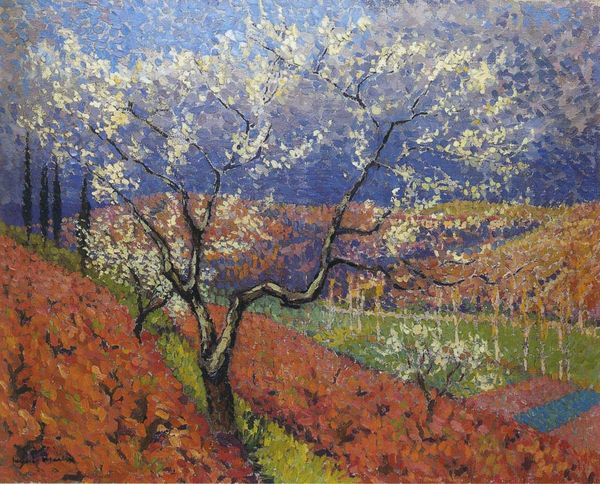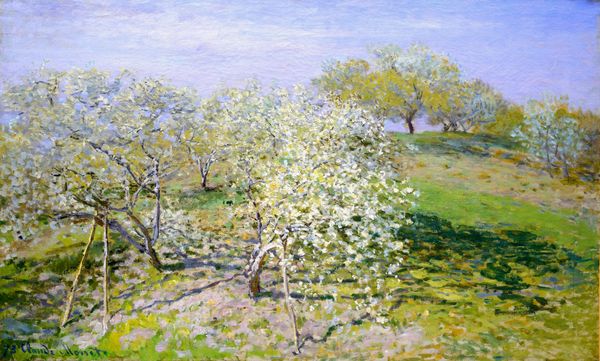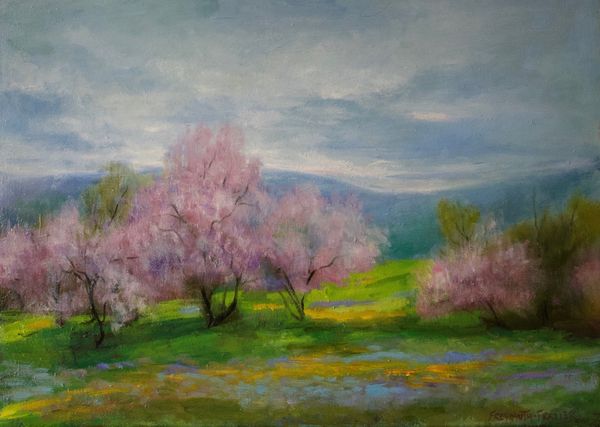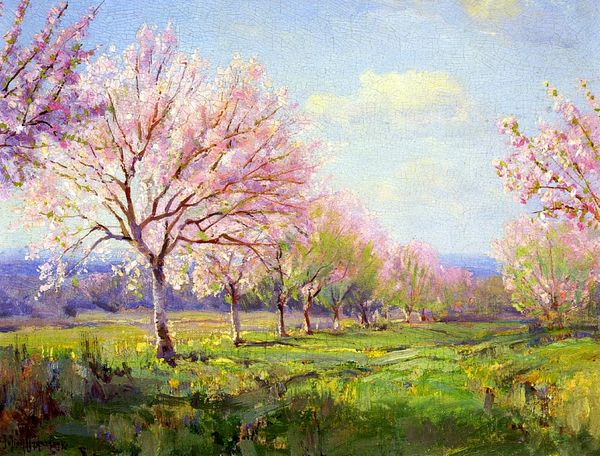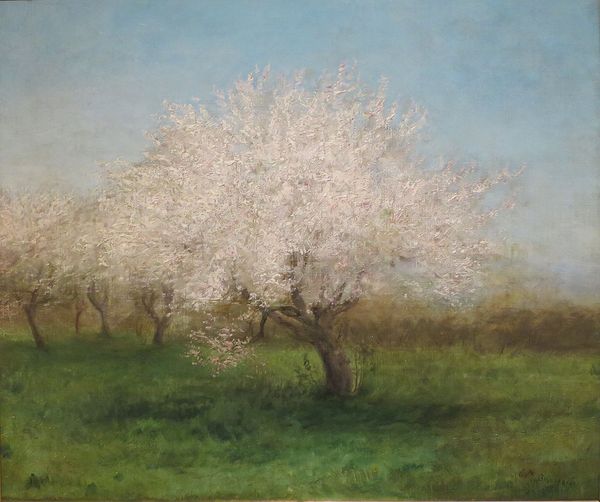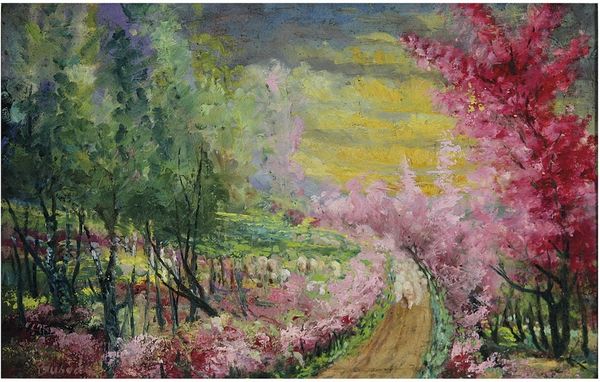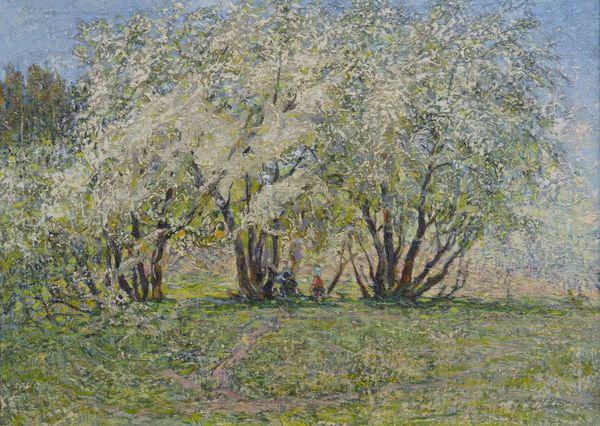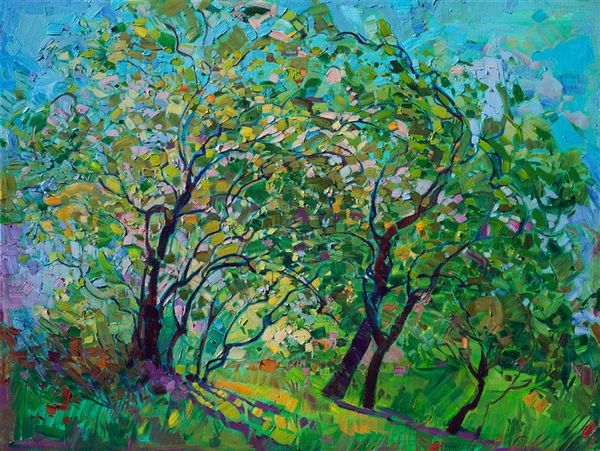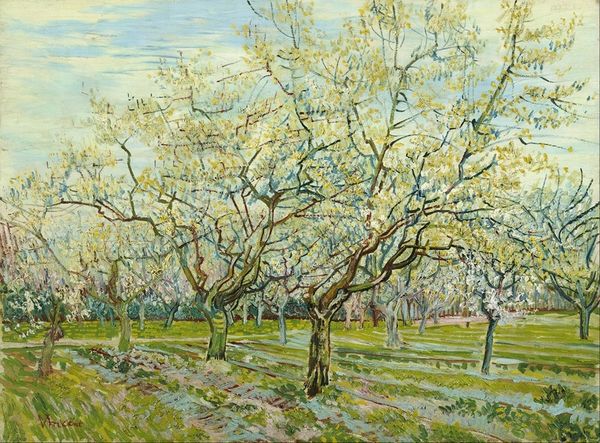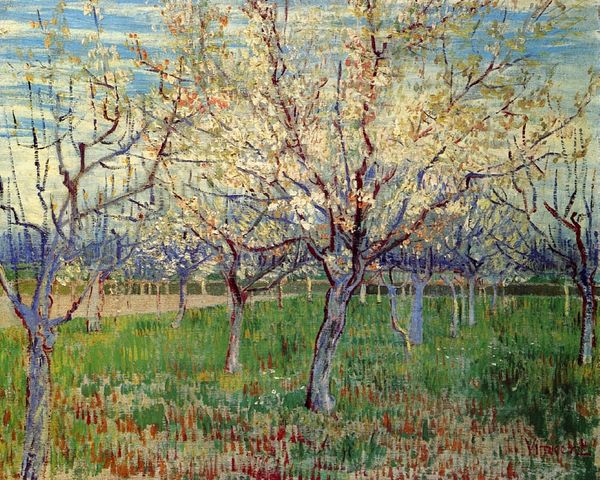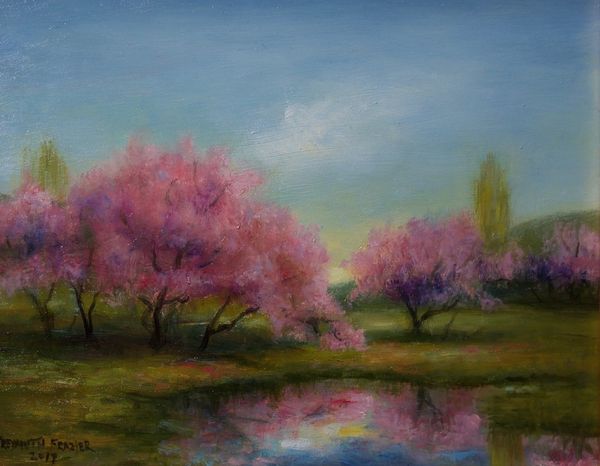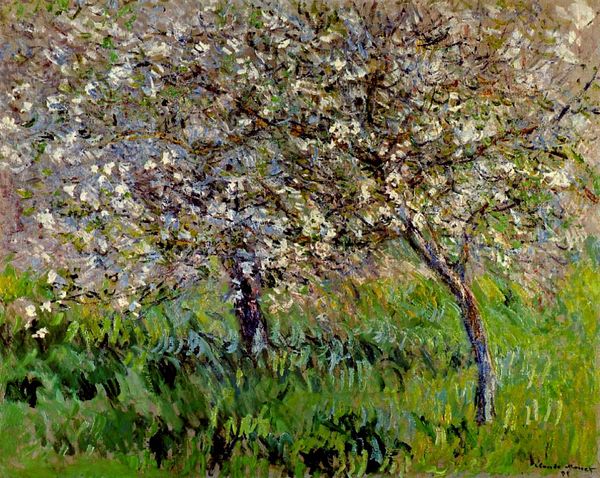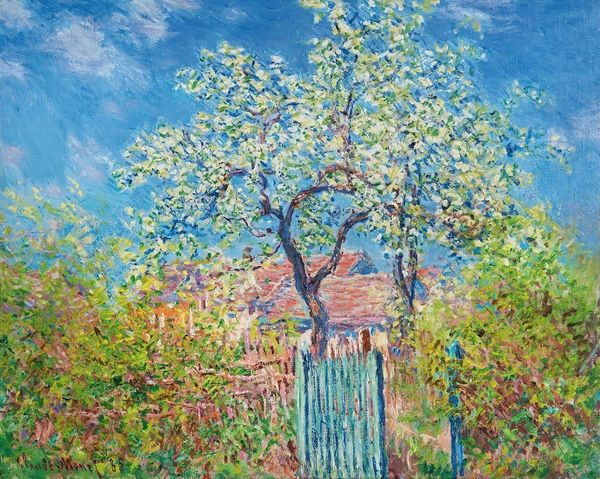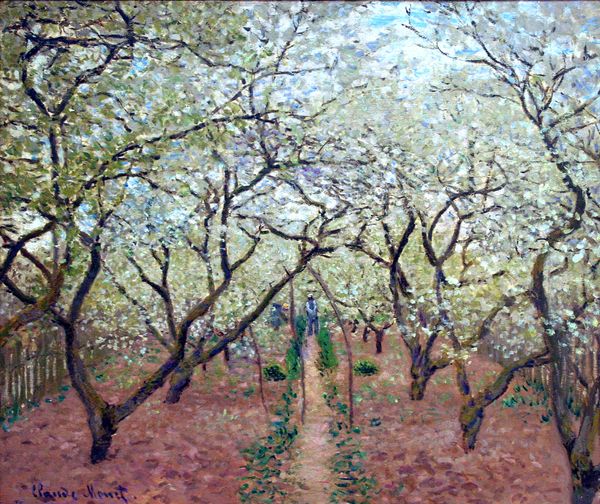
painting, plein-air, oil-paint
#
organic
#
painting
#
impressionism
#
plein-air
#
oil-paint
#
landscape
#
impressionist landscape
#
figuration
#
natural-landscape
#
nature
#
modernism
Copyright: Kimon Loghi,Fair Use
Editor: Here we have "Blooming Apple Trees" by Kimon Loghi, rendered with oil paint in a plein-air, impressionistic style. It feels like a scene bursting with life, yet there's also something fleeting and fragile about it. How do you interpret this work? Curator: The "fleeting" and "fragile" that you identify immediately make me think of cycles of regeneration, something that's certainly resonated differently depending on various sociopolitical and cultural contexts, right? Considering Loghi likely painted this en plein air, how might the act of painting directly within nature speak to larger, intersectional dialogues surrounding the environment, land ownership, and human interaction with the natural world in Loghi’s time? Editor: That's fascinating! I hadn't considered the layers of meaning behind simply painting outdoors. Was this a common practice, and how might it relate to societal views on nature then? Curator: Painting en plein air gained popularity with the Impressionists, offering a break from academic traditions and an engagement with the realities of the external world, outside of the restrictions of a studio. Considering, then, that we still define art schools with respect to this tradition – to *go outside* and 'engage with the real'– does it not say more about the politics of keeping 'the real' outside of our 'internal' understanding of knowledge production? How might we re-interpret nature as something other than that which we *visit* and *borrow* inspiration from? Editor: Wow, that is such a shift in perspective. I usually think of Impressionism as just pretty landscapes, but it's clearly much more involved and important than I realized. Thank you for helping me see the bigger picture here. Curator: Absolutely. It is by unpacking the many meanings held within "just pretty landscapes" that we can continue to critically discuss art's position in relation to current socio-political ecologies.
Comments
No comments
Be the first to comment and join the conversation on the ultimate creative platform.
